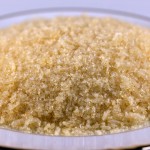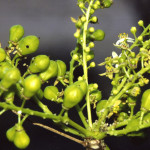Best Diet Plan for Rheumatoid Arthritis Sufferers
Contents
What is the best diet plan for rheumatoid arthritis sufferers who are looking for natural ways to relieve arthritis pain?

#1: Consume Foods That Contain Quercetin
Quercetin is a flavonoid and a powerful antioxidant. Studies suggest that it can fight inflammation, including inflammation that occurs in the joints of rheumatoid arthritis patients. Good dietary sources of quercetin include capers, apples, lovage, red and yellow onions, broccoli, red grapes, tea, cherries, citrus fruits, chia seeds, and many berries including raspberries,lingonberries, and cranberries.
#2: Be Sure to Get Enough Vitamin D
There is some evidence that vitamin D might prevent rheumatoid arthritis. The body uses vitamin D to maintain healthy cartilage and it seems to prevent the breakdown of cartilage in people with rheumatoid arthritis (cartilage is a type of connective tissue that provides a cushioning effect in joints). Vitamin D is a fat-soluble vitamin that is present in a few foods such as egg yolks, liver, fish, and dairy products fortified with vitamin D. However, most people meet their vitamin D needs through exposure to sunlight as sunlight triggers the body to synthesize its own vitamin D.
#3: Push Up Your Vitamin C and Vitamin E Levels
Vitamin E is a potent antioxidant which helps neutralize free radicals and which appears to reduce inflammation in joints. A high intake of vitamin E has been shown to alleviate pain, reduce the duration of stiffness, and increase grip strength in people with chronic rheumatoid arthritis. Vitamin C may also help reduce inflammation through its antioxidant activities. Vitamin C and vitamin E protect each other and are more effective when consumed together.
#4: Eat Foods Rich in Copper, Zinc, and Vitamin B6
Our bodies use zinc and copper to make enzymes that fight inflammation by neutralizing free radicals. Copper also helps the body manufacture connective tissue, ligaments, and tendons, which surround joints and help them stay stable. Zinc, which requires vitamin B6 for proper absorption, is involved in building enzymes that repair joints. Low levels of vitamin B6 have also been associated with increased risk of rheumatoid arthritis. Thus, it makes sense to combine zinc rich foods with foods that contain vitamin B6. Also zinc and copper should be consumed together as the balance between the two is crucial: too much zinc interferes with copper absorption, and higher amounts of copper can be toxic.
#5: Include Omega-3 Fatty Acids in Your Diet
Omega-3 fatty acids have been shown to have strong anti-inflammatory effects. Several studies have shown that an increased omega-3 intake helps reduce joint pain and stiffness as well as signs inflammation in people with rheumatoid arthritis. Good sources of omega-3 fatty acids include flaxseeds, chia seeds, walnuts, soybeans, and cold water fish like salmon, cod, and halibut.
#6: Eat foods High in Carotenoids and Vitamin A
Foods rich in beta-carotene should be included in any diet designed for rheumatoid arthritis patients. Beta-carotene is a fat soluble antioxidant with strong anti-inflammatory properties, and research shows that low levels of beta-carotene are a risk factor for rheumatoid arthritis. Also vitamin A, which can be made from beta-carotene by the body, is a potent antioxidant. The main food sources of beta-carotene are yellow/orange and green vegetables and fruit such as spinach, carrots, kale, sweet potatoes, winter squash, mango, melon and apricots. Lycopene, another carotenoid with strong antioxidant activity, is found in tomatoes, apricots, papaya, pink grapefruit, watermelon, and pink guavas.
#7: Eat Plenty of Selenium-Rich Foods
Low levels of the trace element selenium have been associated with increased risk of rheumatoid arthritis. Improving dietary intake of selenium through foods such as Brazil nuts, crimini mushrooms, cod, shrimp, and halibut may help relieve arthritis symptoms in RA patients. The beneficial effects of selenium on rheumatoid arthritis are based on the role of this trace element in the antioxidant system of the body: selenium is a key component of several enzymes involved in antioxidant defense. To get the most out of selenium’s health benefits, combine selenium rich foods with foods high in vitamin E (selenium boosts the effectiveness of the vitamin E).
Important notice: The information below and elsewhere on this website is not intended or implied to be a substitute for professional medical or health advice. Always seek the advice of a professional health care provider.




At the moment a glass of parsly water in the morn +eve is helping me u draw the water like tea lets call it parsly tea